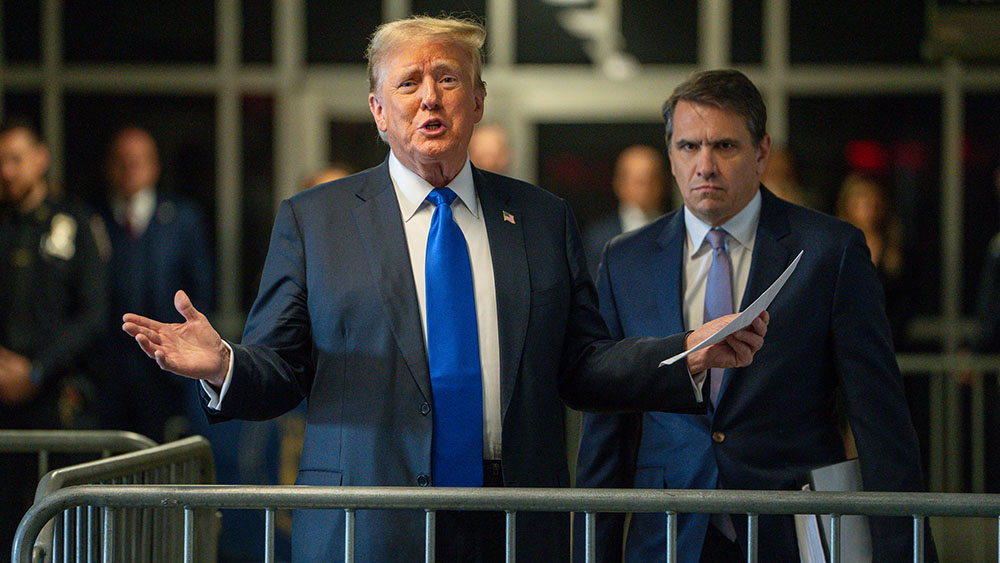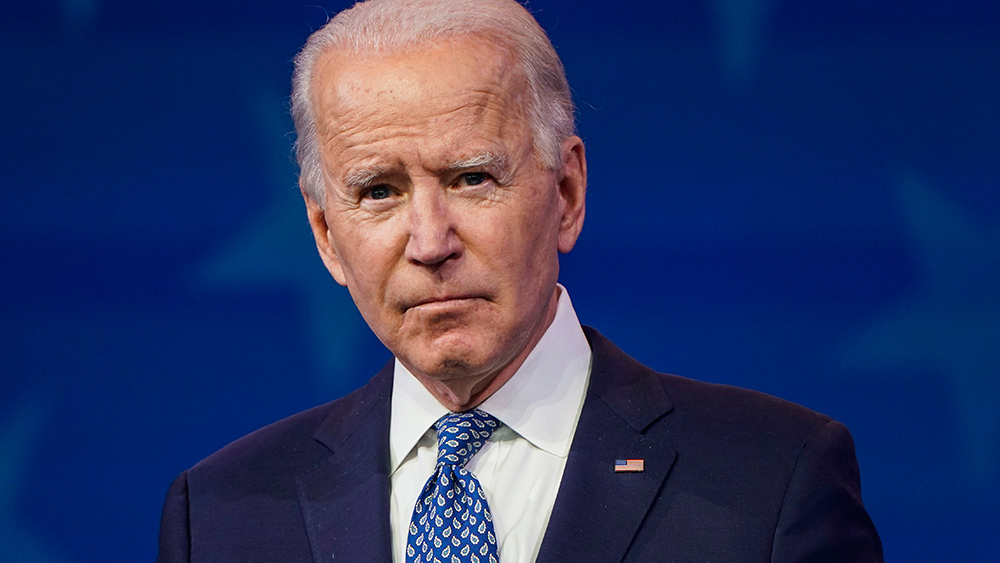Bank of Israel advances digital shekel plans; CBDC to be used to surveil, control monetary transactions of Israelis
06/18/2024 / By Belle Carter

In line with Israel’s push for a digital currency initiative to accelerate its central bank digital currency (CBDC) development, the Bank of Israel (BoI) is set to collaborate with various service providers to create a digital payment system – the digital shekel.
Israel’s central bank outlined its plans in an announcement, revealing the launch of the “Digital Shekel Challenge.” This initiative, inspired by the Bank for International Settlements (BIS) Innovation Hub’s “Project Rosalind,” aims to explore advanced application programming interface (API) prototypes. The BIS project, conducted in partnership with the Bank of England, serves as a model for this Israeli endeavor.
BoI said it had built a technological prototype “simulating the heart of the digital shekel system.” Payment service providers would get access to the system to provide advanced payment options to the general public. Among the payment types to be explored are micropayments, split payments and payments requiring multiparty signatures, according to the call for participants.
“In the challenge, for the first time, we allow the financial industry from Israel and abroad and a wide variety of stakeholders in the payments system to cooperate with us practically in thinking, planning and designing the digital shekel,” said Andrew Abir, BoI deputy governor.
In 2021, BoI said it had already carried out a pilot test and last year it said it was monitoring scenarios – including whether stablecoins are widely used. It also conducted a project with Hong Kong and BIS to probe how the systems can be protected from hacks.
“This initiative is a significant step for the Israeli ecosystem, potentially bridging the gap between the web3 industry and government, even though DeFi, ZK and permissionless solutions are not yet being considered,” said Saul Rejwan, managing partner at Masterkey VC.
Over the years, the advocacy of banks all over the world to shift to digital currencies has received various criticisms, especially when it comes to citizens’ privacy and civil liberties. While proponents argue that CBDCs could help provide banking access to the unbanked, the same technology could be exploited to exclude or discriminate against certain groups.
One of the primary concerns is the potential for increased surveillance. Unlike cash transactions, CBDC transactions could be tracked and monitored by central banks. The financial institution’s power to trace every transaction made with CBDCs severely undermines financial privacy. It allows governments to gather extensive data on individual’s spending habits and personal financial activities.
Moreover, with CBDCs, authorities could potentially misuse the power to target political opponents or suppress dissent by freezing or seizing assets without due process. Analysts predict that with the system, governments could dictate how, where and when money can be spent. It also opens the door to excessive control over individual financial behavior. (Related: Russian State Duma officially approves country’s very own CBDC, the DIGITAL RUBLE.)
Survey: 94% of central banks are considering CBDCs
BIS, an international financial institution owned by member central banks, conducted a new survey that concluded that most central banks are now exploring the possibility of issuing their own digital currencies.
The BIS surveyed 86 different central banks and 94 percent of the respondents noted that they were involved in some form of CBDC work last year. It found that most respondents were working on both retail and wholesale CBDCs, which are restricted to large transactions between financial institutions.
The central bank umbrella organization’s survey also indicated that it’s more likely central banks will issue wholesale CBDCs in the next six years than their retail counterparts.
“Based on the number of central banks that indicated that they would be very likely to start issuing a CBDC over the next few years, there could be six additional retail and nine wholesale CBDCs publicly circulating towards the end of this decade,” the polling included. This information mirrored the numbers reported by the World Economic Forum (WEF) in April.
The WEF, a Switzerland-based international organization focused on public-private cooperation, noted that more than 98 percent of the world’s central banks are “researching, experimenting, piloting or deploying” CBDCs. The globalist organization also predicted that there could be 24 live CBDCs by 2030.
Visit CryptoCult.news to read more stories about governments’ push to shift to digital currencies.
Watch the video below that talks about currency crash and the promotion of CBDCs that pose surveillance risks.
This video is from the Son of the Republic channel on Brighteon.com.
More related stories:
SWIFT’s new central bank digital currency platform could be ready in 1-2 years.
Tom Renz: Digital currencies will lead to the end of freedom – Brighteon.TV.
Sources include:
Submit a correction >>
Tagged Under:
Bank of Israel, big government, BoI, CBDC, civil liberty, currency crash, currency reset, digital money, Digital Shekel Challenge, financial activities, financial privacy, Israel, log and trace, money supply, payment system, privacy watch, seize assets, shekel, spending habits, suppress dissent, surveillance, tracked
This article may contain statements that reflect the opinion of the author
RECENT NEWS & ARTICLES
COPYRIGHT © 2017 PENSIONS NEWS




















